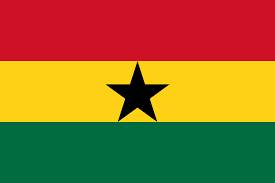Exploring the Rich Culture and History of Ghana
Ghana, a country located along the Gulf of Guinea in West Africa, is known for its vibrant culture, historical significance, and diverse landscape. With a population of over 32 million, it is one of the most stable democracies in Africa. Ghana gained its independence from British colonial rule on March 6, 1957, making it the first African country to do so. This milestone not only symbolized a turning point in the fight for African independence but also set the stage for other nations to follow suit. Ghana’s colonial past, with its history of the transatlantic slave trade, plays an integral role in its cultural identity and collective memory. The country’s rich heritage, marked by centuries of traditional kingdoms and diverse ethnic groups, remains a core part of its national pride.
The cultural diversity in Ghana is another key feature that makes the country unique. With over 100 different ethnic groups, including the Akan, Mole-Dagbani, Ewe, and Ga-Dangme, the country is a melting pot of languages, traditions, and customs. The most widely spoken language is Twi, a dialect of the Akan language, but English remains the official language. Festivals play a huge role in Ghanaian life, with celebrations such as Homowo, Aboakyer, and the famous Odwira attracting both locals and tourists. These festivals are often marked by music, dancing, traditional foods, and a display of the community’s heritage, offering visitors a unique window into Ghanaian life. The art scene is equally thriving, with textiles like kente cloth and beadwork symbolizing the country’s rich craftsmanship.
Ghana’s geographical landscape, ranging from coastal plains to savannah and forest regions, adds to its appeal. The country boasts a variety of national parks, such as Mole National Park in the north, known for its wildlife, including elephants and antelopes. The lush rainforests of the Western region and the beautiful beaches of the Atlantic coast, such as those in the capital, Accra, draw tourists from all over the world. Ghana is also home to historical sites like the Cape Coast Castle and Elmina Castle, former centers of the transatlantic slave trade, which serve as poignant reminders of the country’s painful yet transformative past. These landmarks are an essential part of Ghana’s tourist industry and help educate visitors about the country's historical struggles and triumphs.Exploring the Rich Culture and History of Ghana
Ghana, a country located along the Gulf of Guinea in West Africa, is known for its vibrant culture, historical significance, and diverse landscape. With a population of over 32 million, it is one of the most stable democracies in Africa. Ghana gained its independence from British colonial rule on March 6, 1957, making it the first African country to do so. This milestone not only symbolized a turning point in the fight for African independence but also set the stage for other nations to follow suit. Ghana’s colonial past, with its history of the transatlantic slave trade, plays an integral role in its cultural identity and collective memory. The country’s rich heritage, marked by centuries of traditional kingdoms and diverse ethnic groups, remains a core part of its national pride.
The cultural diversity in Ghana is another key feature that makes the country unique. With over 100 different ethnic groups, including the Akan, Mole-Dagbani, Ewe, and Ga-Dangme, the country is a melting pot of languages, traditions, and customs. The most widely spoken language is Twi, a dialect of the Akan language, but English remains the official language. Festivals play a huge role in Ghanaian life, with celebrations such as Homowo, Aboakyer, and the famous Odwira attracting both locals and tourists. These festivals are often marked by music, dancing, traditional foods, and a display of the community’s heritage, offering visitors a unique window into Ghanaian life. The art scene is equally thriving, with textiles like kente cloth and beadwork symbolizing the country’s rich craftsmanship. These vibrant expressions of culture are a testament to the pride Ghanaians have in their heritage and creativity.
Ghana’s geographical landscape, ranging from coastal plains to savannah and forest regions, adds to its appeal. The country boasts a variety of national parks, such as Mole National Park in the north, known for its wildlife, including elephants and antelopes. The lush rainforests of the Western region and the beautiful beaches of the Atlantic coast, such as those in the capital, Accra, draw tourists from all over the world. Ghana is also home to historical sites like the Cape Coast Castle and Elmina Castle, former centers of the transatlantic slave trade, which serve as poignant reminders of the country’s painful yet transformative past. These landmarks are an essential part of Ghana’s tourist industry and help educate visitors about the country's historical struggles and triumphs. Ghana’s coastal regions also boast picturesque fishing villages, where the rich traditions of the people are reflected in their daily lives, further enriching the tourism experience.
Economically, Ghana is one of the fastest-growing countries in sub-Saharan Africa, driven by a mix of agriculture, oil, and mining. Cocoa remains a cornerstone of the economy, with Ghana being the second-largest producer of cocoa beans globally, after Ivory Coast. The country is also rich in mineral resources, particularly gold, and has attracted significant foreign investment in the mining sector. The discovery of oil in the early 2000s has added another layer to Ghana’s economic growth, bringing new opportunities for infrastructure development and job creation. However, the country faces challenges such as poverty, inequality, and youth unemployment, which the government is addressing through various development policies. Despite these obstacles, Ghana's reputation for political stability, peace, and progress continues to attract both local and international investors. Additionally, Ghana’s strong agricultural sector, particularly in cassava, maize, and yams, sustains the livelihood of many Ghanaians, especially in rural areas. The country is also focusing on expanding its digital infrastructure, hoping to leverage technology to boost economic growth and improve education, health, and financial services. With its mix of history, culture, and economic potential, Ghana remains one of the most intriguing countries in Africa, symbolizing both a rich past and a promising future.
Economically, Ghana is one of the fastest-growing countries in sub-Saharan Africa, driven by a mix of agriculture, oil, and mining. Cocoa remains a cornerstone of the economy, with Ghana being the second-largest producer of cocoa beans globally, after Ivory Coast. The country is also rich in mineral resources, particularly gold, and has attracted significant foreign investment in the mining sector. The discovery of oil in the early 2000s has added another layer to Ghana’s economic growth, bringing new opportunities for infrastructure development and job creation. However, the country faces challenges such as poverty, inequality, and youth unemployment, which the government is addressing through various development policies. Despite these obstacles, Ghana's reputation for political stability, peace, and progress continues to attract both local and international investors. With its mix of history, culture, and economic potential, Ghana remains one of the most intriguing countries in Africa, symbolizing both a rich past and a promising future.




No comments yet
Be the first to share your thoughts!